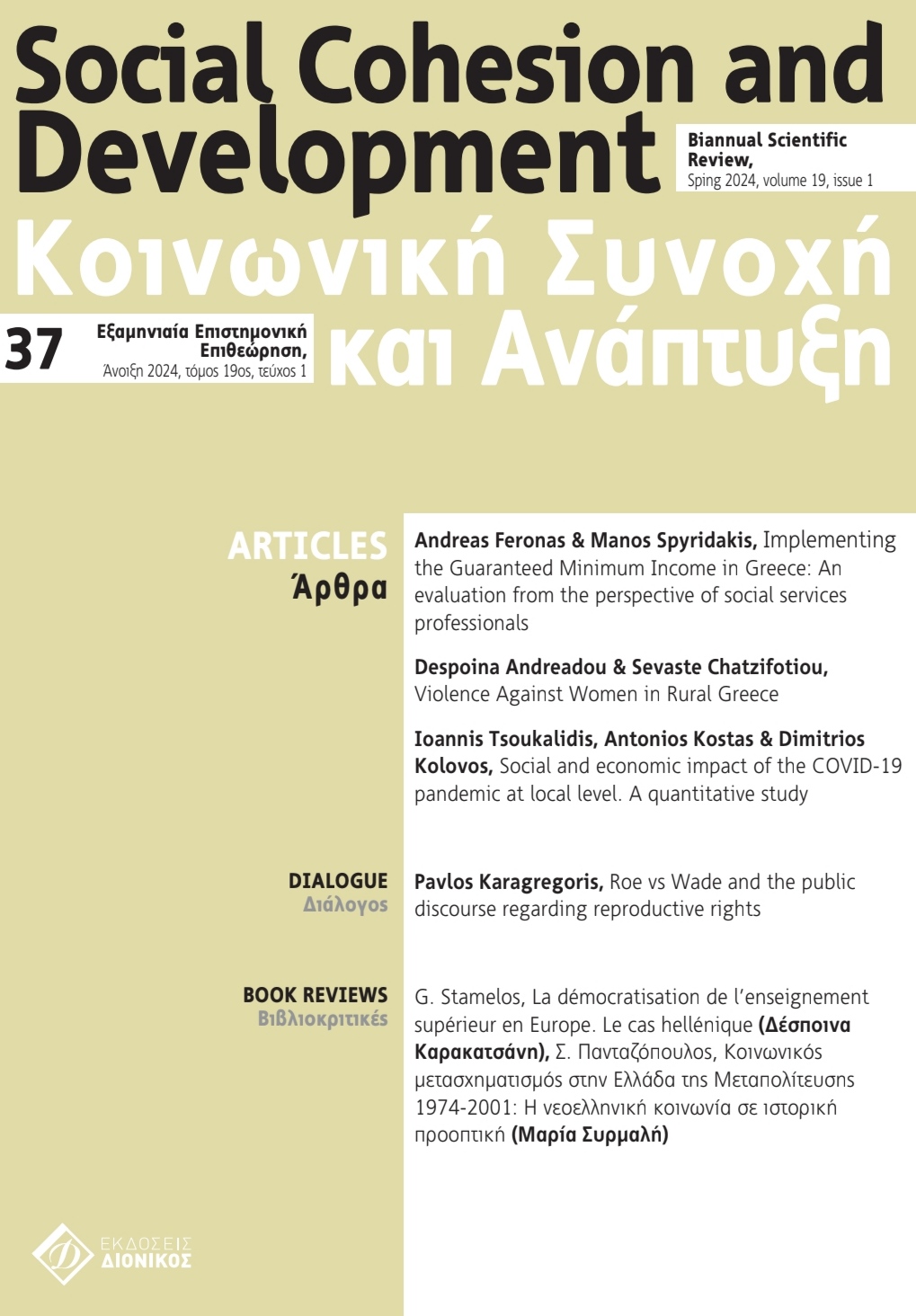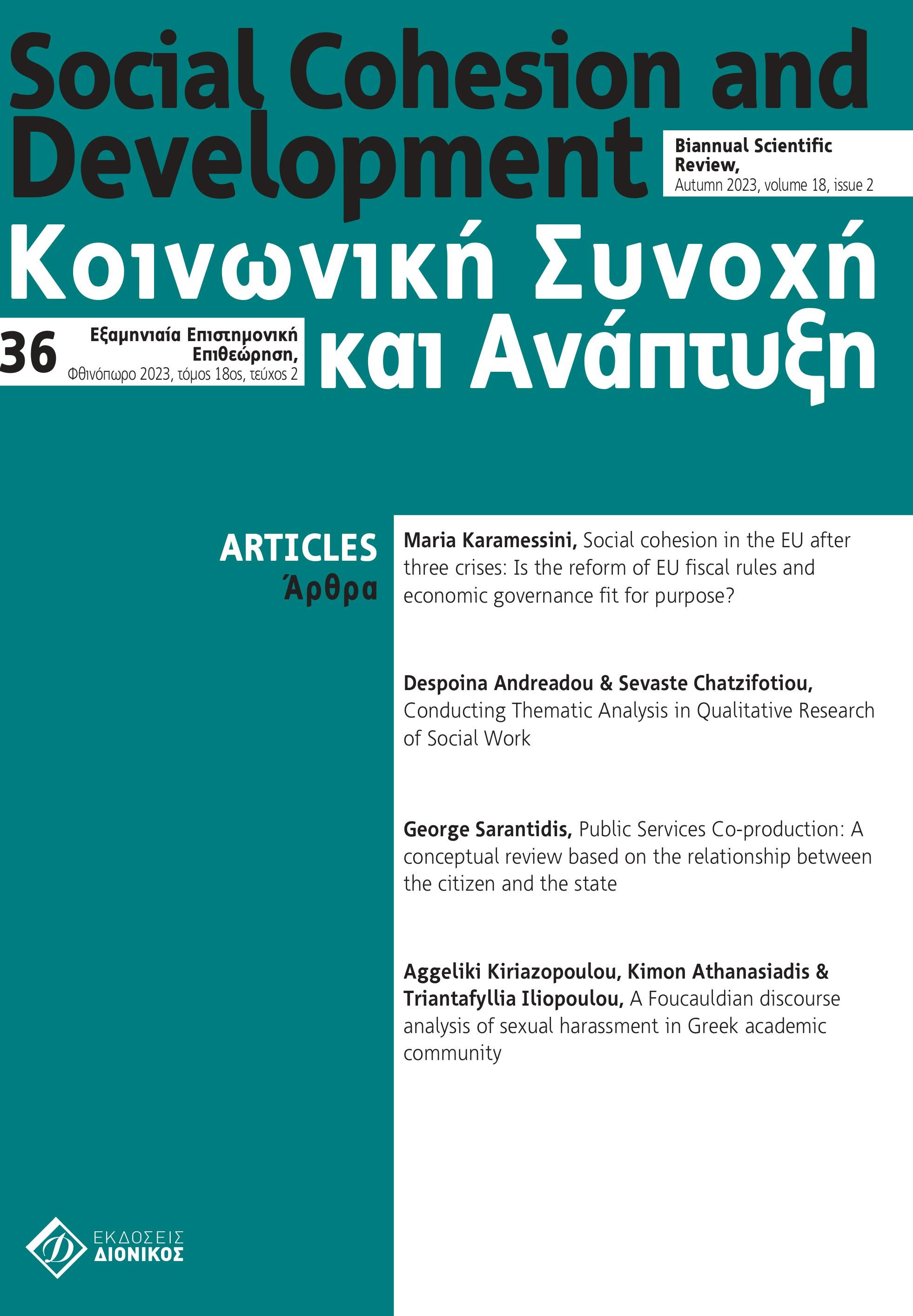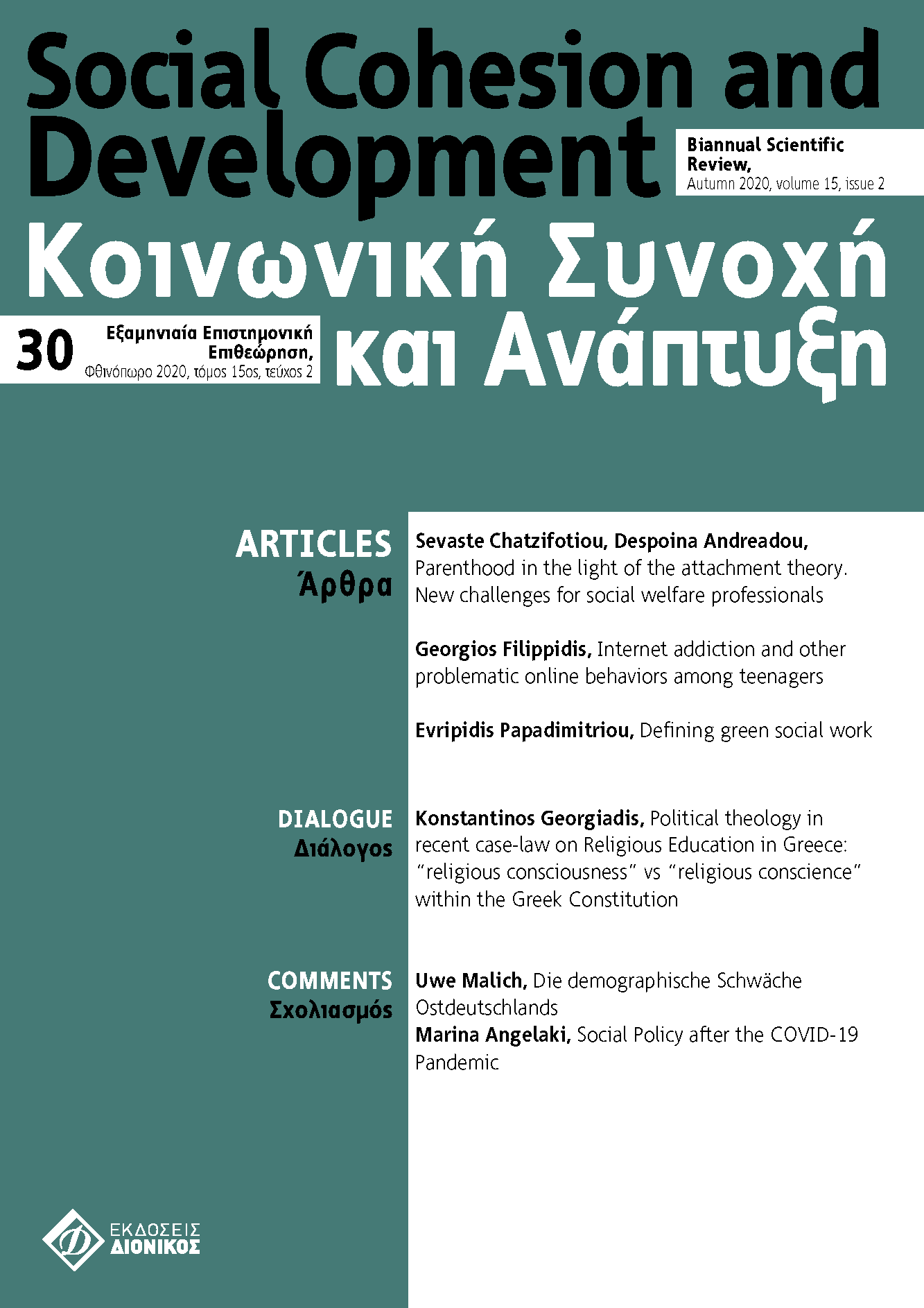Violence Against Women in Rural Greece

Abstract
Violence against women is a global human rights violation. Despite this, there is a lack of culturally sensitive country specific empirical research on violence against women. Much of the existing research focuses on the experiences of women living in urban and metropolitan areas. Little is known about the experiences of women living in rural areas. The current study uses feminist qualitative methodology to examine the unique experiences of intimate partner violence survivors in rural Greece who sought services from a regional Community Centre. Interviews with 12 rural Greek women were conducted, transcribed, and thematically coded to reveal commonalities in the participants’ narratives. Our analysis revealed themes related to the impact of rurality on help-seeking behaviors, knowledge of and access to social services, and how rural patriarchal culture impacts victims’ willingness
to seek help. The results of this study shed light on the understudied experiences of rural Greek women who have experienced domestic abuse. Our findings can be used to further expand global rural criminological theory and develop procedures to remove the barriers that rural survivors face when seeking social services.
Article Details
- How to Cite
-
Andreadou, D., & Chatzifotiou, S. (2024). Violence Against Women in Rural Greece. Social Cohesion and Development, 19(1), 25–38. https://doi.org/10.12681/scad.39740
- Section
- Articles

This work is licensed under a Creative Commons Attribution-NonCommercial-ShareAlike 4.0 International License.
Authors who publish with this journal agree to the following terms:
- Authors retain copyright and grant the journal right of first publication with the work simultaneously licensed under a Creative Commons Attribution Non-Commercial License that allows others to share the work with an acknowledgement of the work's authorship and initial publication in this journal.
- Authors are able to enter into separate, additional contractual arrangements for the non-exclusive distribution of the journal's published version of the work (e.g. post it to an institutional repository or publish it in a book), with an acknowledgement of its initial publication in this journal.
- Authors are permitted and encouraged to post their work online (preferably in institutional repositories or on their website) prior to and during the submission process, as it can lead to productive exchanges, as well as earlier and greater citation of published work (See The Effect of Open Access).




